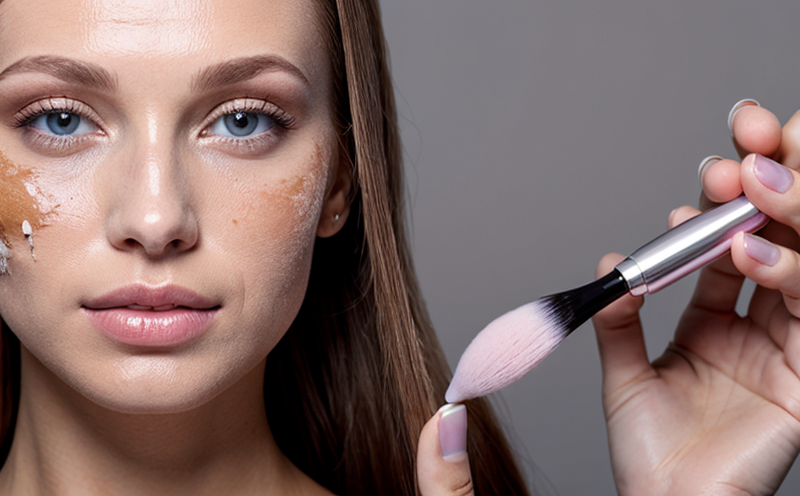Stability Testing for Regulatory Submissions in Cosmetics
The importance of stability testing cannot be overstated when it comes to the regulatory compliance of cosmetics. Stability testing is a critical step that ensures that cosmetic products maintain their quality, safety, and efficacy over time under various environmental conditions. This process involves exposing samples to different stressors such as heat, light, humidity, and storage periods.
Stability studies are often required by regulatory authorities like the US Food and Drug Administration (FDA), European Union Cosmetics Regulation, and others around the world. These regulations aim to protect consumers from potentially harmful products while ensuring that the cosmetic industry adheres to strict standards of quality control. By conducting thorough stability tests prior to market release, manufacturers can provide evidence demonstrating product shelf life and maintaining safety throughout.
The results from these studies play a pivotal role in securing necessary approvals for new formulations or changes made during development phases. They also help maintain compliance with ongoing regulatory requirements which could vary depending upon target markets.
Our comprehensive stability testing services cater specifically to meet the needs of quality managers, compliance officers, R&D engineers, and procurement teams involved in cosmetic manufacturing processes. We understand that each product has unique characteristics requiring tailored approaches towards ensuring its safety and effectiveness over extended periods.
Why It Matters
Regulatory submissions for cosmetics are subject to rigorous scrutiny by government agencies worldwide. Ensuring compliance with these regulations not only protects consumers but also enhances brand reputation among manufacturers who prioritize ethical practices in product development. A robust stability testing program demonstrates commitment to maintaining high standards throughout the entire lifecycle of a cosmetic formulation.
Inadequate or improper stability testing can lead to recalls, legal action, and damage to consumer trust—issues that can have severe financial implications for businesses operating within this competitive industry. By investing in reliable stability testing services early on, companies position themselves favorably against potential risks associated with non-compliance.
Furthermore, successful completion of stability studies increases the likelihood of approval from relevant regulatory bodies, thereby facilitating market entry into desired regions. This is especially important given the increasing global demand for safe and effective cosmetic products.
Scope and Methodology
| Parameter | Description | Methodology |
|---|---|---|
| Temperature Cycling | Simulating real-world storage conditions to assess long-term stability. | Products are subjected to repeated cycles of temperature variations (e.g., 4°C to 50°C). |
| Light Exposure | Evaluating the impact of ultraviolet radiation on product integrity and color retention. | Exposure to controlled light sources matching typical exposure scenarios. |
| Humidity Control | Determining effects caused by moisture levels present during transportation or usage. | Sustained humidity levels within specified ranges are maintained over extended periods. |
| Shelf Life Assessment | Estimating the expected duration before significant degradation occurs. | Long-term storage under defined conditions followed by analysis of physical, chemical, and sensory attributes. |
We employ advanced analytical techniques such as HPLC, GC-MS, GC-FID, and others to monitor changes in active ingredients, preservatives, and other components during stability testing. Our team uses internationally recognized standards including ISO 26145:2017 for cosmetic products when applicable.
Our approach ensures that all aspects of your product’s lifecycle are considered, providing you with detailed reports on how your formulation behaves under different environmental conditions. These insights enable informed decisions regarding formulation adjustments or additional testing if needed before finalizing regulatory submissions.
Customer Impact and Satisfaction
By leveraging our expertise in stability testing for regulatory submissions, customers benefit from enhanced compliance assurance, reduced risk of non-compliance penalties, improved product quality perception among end-users, and accelerated time-to-market. Our focus on delivering accurate, reliable results tailored specifically to your needs ensures peace-of-mind knowing that every step taken contributes towards meeting stringent regulatory requirements.
Positive outcomes extend beyond mere compliance; they contribute significantly towards building long-term relationships based on trust between clients and our laboratory service providers. This commitment translates into increased customer satisfaction levels which translate directly into business growth opportunities for all parties involved.





